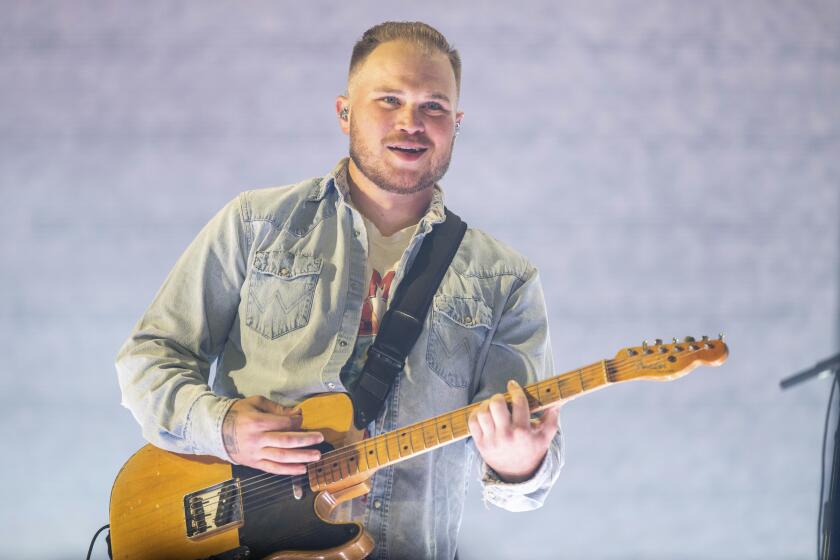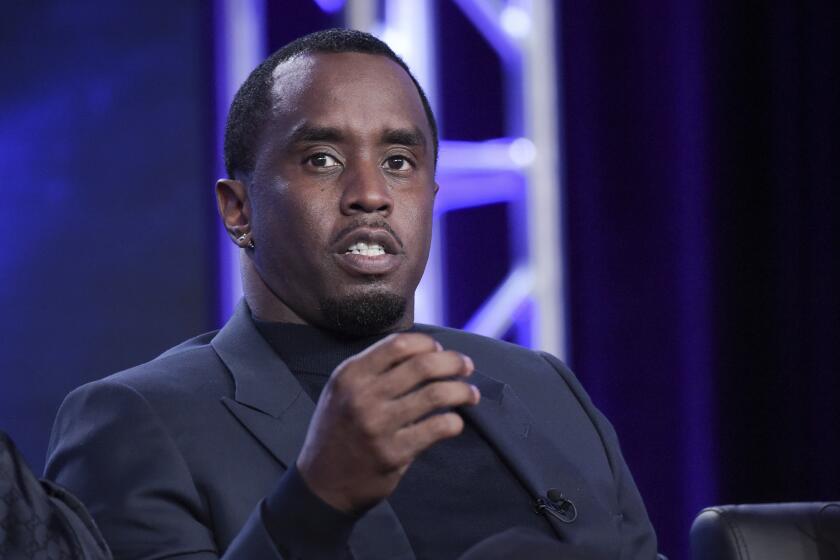To Uganda and back in two hours
By the time Afrigo Band took the stage at Temple Bar in Santa Monica on Friday night, the room already felt a long way from Southern California. A good African club show is not just a concert but also a visit to another continent, and to many of the people crowding around the stage, it was clearly a chance to spend a few hours back home.
The mood was set by three opening acts: The Mugandu Pearls had four male drummers in long white robes accompanying three female dancers with feathered bustles to accentuate their spectacularly shimmying hips. After a brief pause, Afrigo’s instrumentalists came up to back two singers, first Aisha, who led the room in a call-and-response, then the dynamic Zani, a.k.a. Lady Chocolate. Clad in leather, sequins and chains, she got the crowd up and dancing, then introduced the evening’s stars.
Afrigo Band has been Uganda’s foremost pop group for more than 30 years. Its music, which American listeners heard on the “The Last King of Scotland” soundtrack, brings together all the influences of the classic Central African style: Local melodies are spiked with touches of Cuban son, American soul and the sinuous electric guitar lines of Congolese rumba.
Afrigo’s most distinctive touches are Moses Matovu’s liquid saxophone lines and the variety of vocal textures. The nine-piece touring group consisted of a four-man band -- guitar, bass, drums and keyboards -- and five singers. Both sonically and visually, the vocalists were an impressively mixed bunch, and the constantly shifting lineup moved easily from high-energy African pop to soul and reggae.
The most heartfelt singing came from the perfectly matched duo of Matovu and Charles Sekyanzi, who formed Afrigo in 1974 after they had worked together in a previous band. By now, they are linked in effortless synchrony, and their harmonies, which opened and closed the evening, had the relaxed, achingly nostalgic warmth of an Ugandan Everly Brothers.
After two or three opening numbers -- it was hard to tell, because they segued seamlessly from one to the next -- Joanita Kawalya added a female voice and presence. Like most of the band, she looked as if she had grown up listening to earlier incarnations of Afrigo, and she brought a youthful energy to contrast with the mellow sweetness of the veterans.
Don Kanta Ibanda came next, a smooth soul preacher in a glittering vest, matching evocative hand gestures with a voice that dipped from lilting high passages to a rich baritone, punctuated by Justin Matu’s darting guitar riffs. Then Devoh Bazanye, in sunglasses and a leather coat, added a touch of urban modernity, getting the crowd up with choruses of “Gonna dance, dance,” between gruffly shouted verses in Luganda.
Afrigo’s set lasted more than two hours, and the crowd was with the musicians all the way, dancing, singing and complimenting the soloists by showering dollars at their feet and tucking bills in their pockets. They wound up well after 1 a.m., and the encores were a foregone conclusion.
More to Read
The biggest entertainment stories
Get our big stories about Hollywood, film, television, music, arts, culture and more right in your inbox as soon as they publish.
You may occasionally receive promotional content from the Los Angeles Times.










